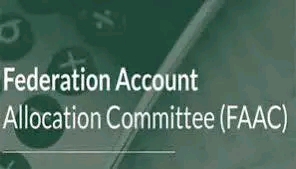By Abdul Lauya
Jigawa, Taraba, and Sokoto have emerged as the most financially vulnerable states in Nigeria, with their revenues overwhelmingly dependent on federal allocations from the Federation Account Allocation Committee (FAAC).
Fresh data from an Agora Policy report reviewed by BusinessDay show that in the first half of 2025, FAAC disbursements accounted for 73.8 percent of the revenues of 30 states, underscoring the continued fiscal fragility of sub-nationals two years after fuel subsidies were scrapped.
The N6.05 trillion realized by the states within the period was heavily skewed, with N4.46 trillion coming from FAAC and only N1.59 trillion from internally generated revenue (IGR).
Only Lagos broke the dependency cycle, with federal transfers accounting for less than one-third of its N1.28 trillion total revenue, while it alone generated over N890 billion in IGR, more than the combined IGR of 25 states.
In contrast, Jigawa, Taraba, and Sokoto ranked among the weakest performers, reflecting poor tax compliance, limited economic activity, and weak revenue-generation capacity outside of federal lifelines.
Incidentally, these three states are also among the poorest in Nigeria, with some of the country’s highest levels of multidimensional poverty, low per capita income, widespread malnutrition, and staggering numbers of out-of-school children, deepening their vulnerability.
Economists warn that the overreliance on FAAC exposes these states to fiscal shocks, with Ayo Teriba, CEO of Economics Associates, stressing that “investment is key to unlocking revenue” through infrastructure such as rail and metro systems.
But experts like Muda Yusuf argue that the deeper problem lies in Nigeria’s fiscal architecture, where corporate tax, petroleum royalties, and VAT flow into the central pool, leaving states with only PAYE tax as their primary source of IGR.
While four new revenue laws are set to take effect in January 2026 to strengthen collection, most of the inflows will still accrue to the centre, limiting states’ fiscal autonomy and keeping them trapped in a cycle of dependency.
Eye Reporters caution that unless Nigeria reforms its tax assignment system and addresses infrastructure gaps, states like Jigawa, Taraba, and Sokoto will remain at the bottom rung, locked in poverty and perpetually reliant on FAAC to survive.
For advert placement and inquiries, publication of press releases, and news coverages, please call: Phone: 08052898434 Email: editor@eyereporters.com, click here to view the advert rates.



